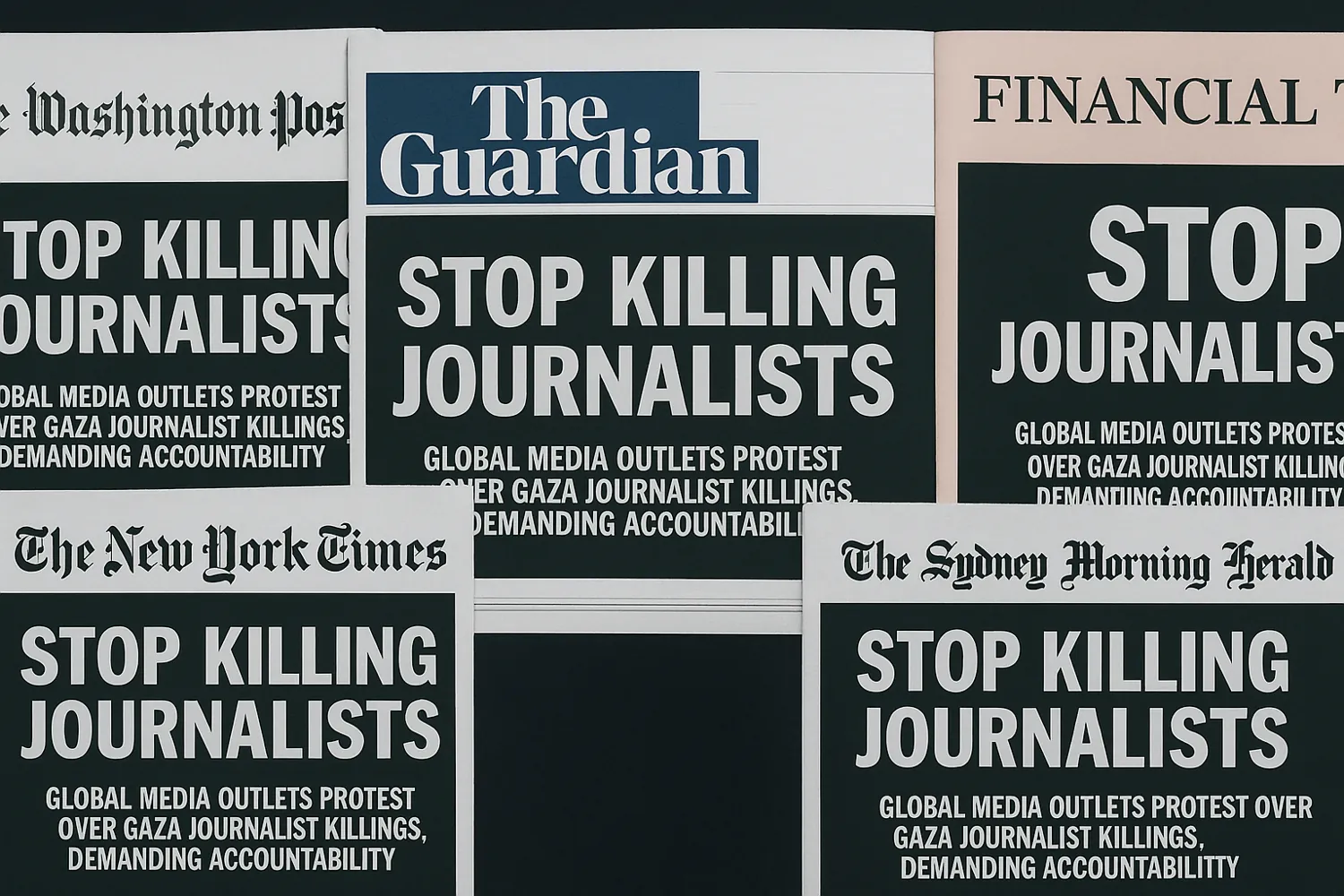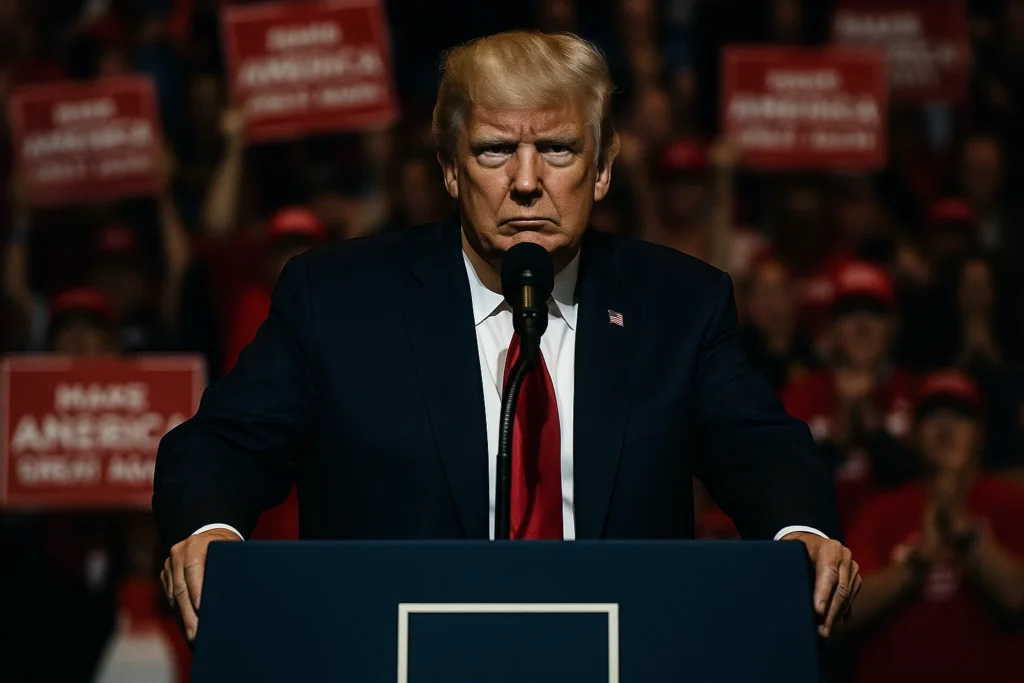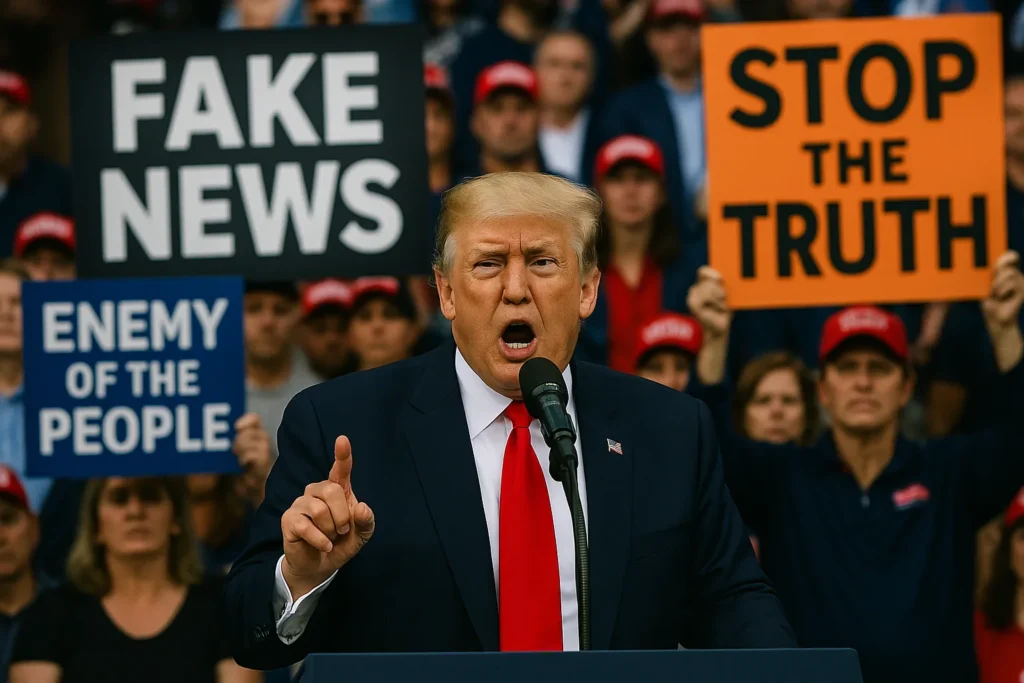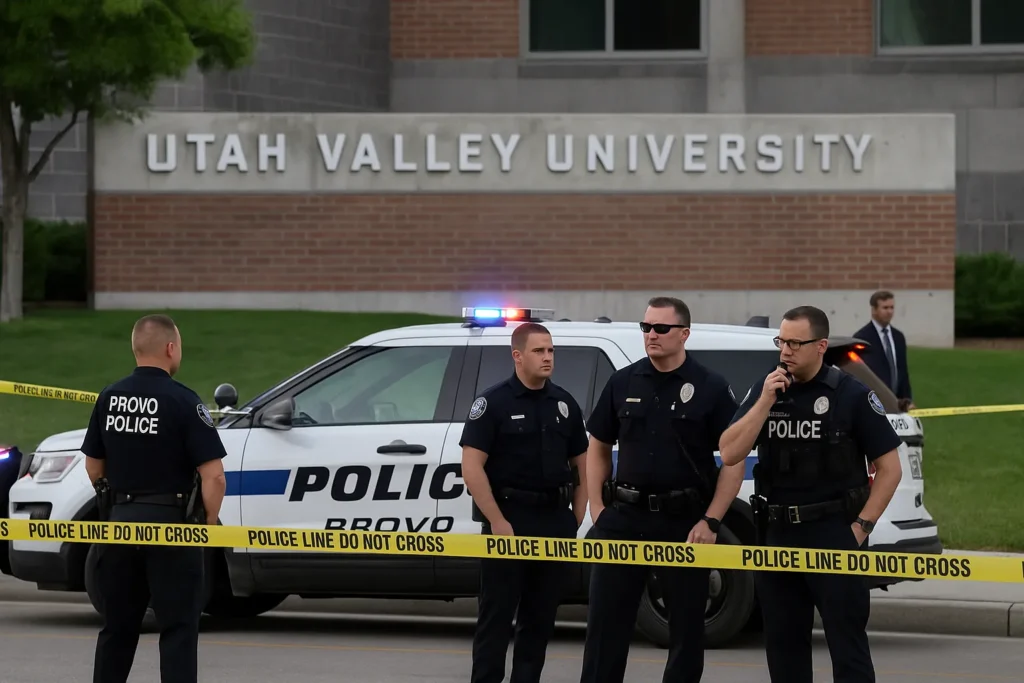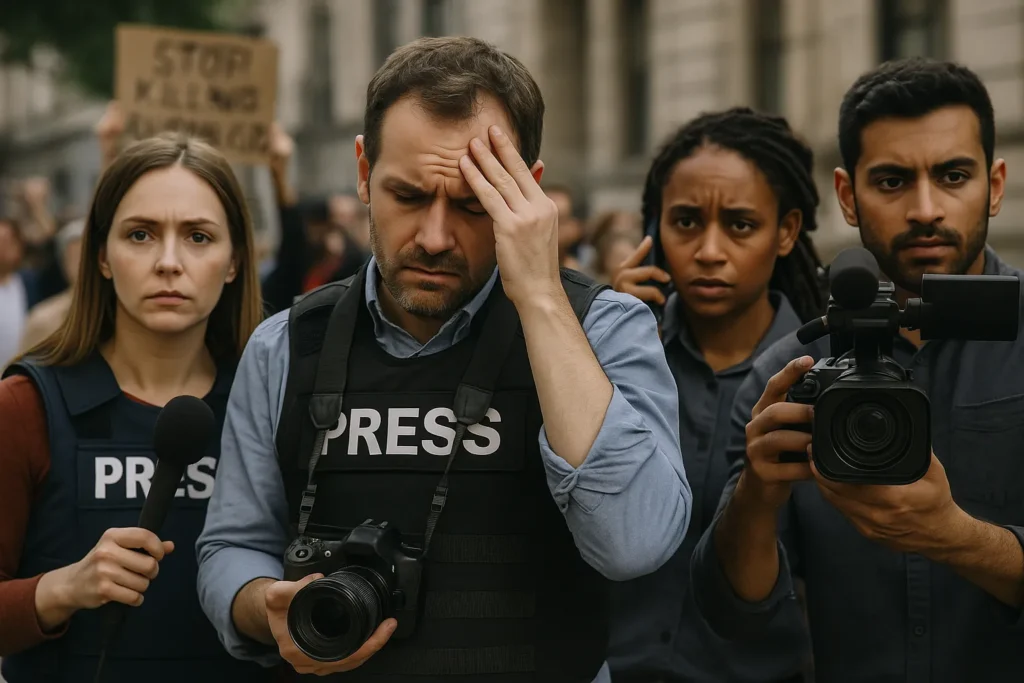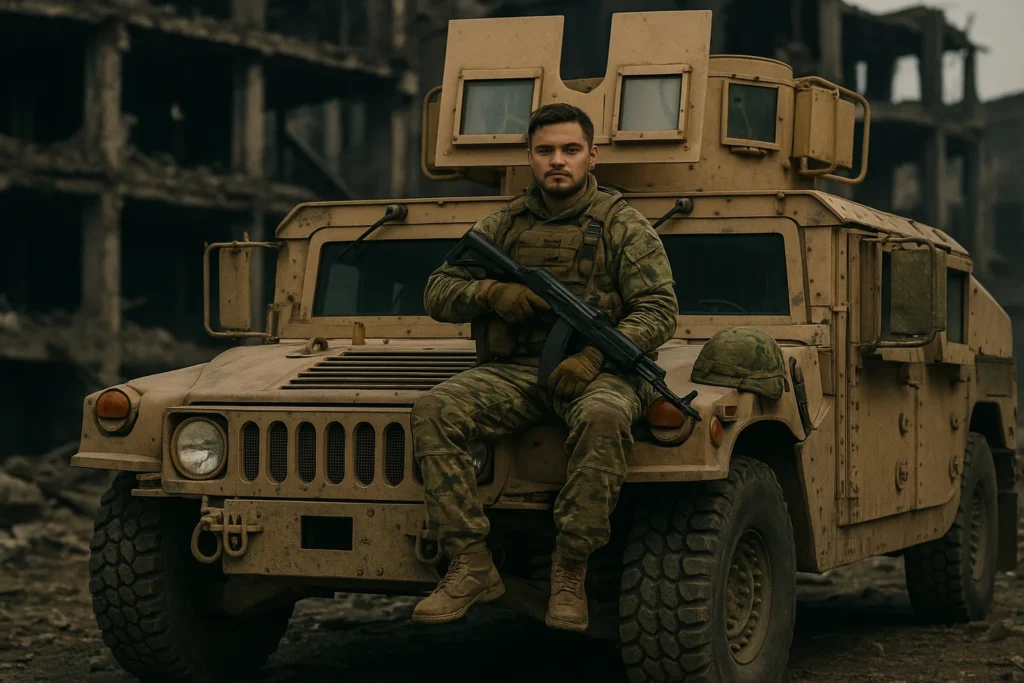When 200 journalists die, and the West looks away
Gaza journalist killings have now exceeded 200 in just under two years. This is not collateral damage — it’s a campaign. A campaign against truth, exposure, and accountability.
Even more disturbing is the lack of outrage from the so-called defenders of “press freedom.” On September 1, over 250 media outlets protested in unison, publishing front-page banners in solidarity. However, major Western governments remained unmoved.
When journalists become deliberate targets — and their deaths become statistics — the world doesn’t just lose reporters. It loses witnesses. It loses history.
Context: 250+ global media protest journalist deaths in Gaza
On September 1, more than 250 newspapers, TV stations, and digital outlets across 70 countries staged a coordinated editorial protest.
Why?
The documented killing of journalists in Gaza by Israeli military operations has surpassed 200. These killings occurred:
- While journalists wore marked press vests
- Inside clearly labeled vehicles
- During live broadcasts
Most victims were Palestinian reporters. Moreover, organizations like Reporters Without Borders, IFJ, and CPJ have confirmed this is the deadliest period for journalism since World War II. Despite this, Israel continues to deny intent, framing these deaths as “accidents.”
Oppositional Argument: This is not war — this is silencing
Let’s stop pretending this is collateral. These are not mistakes — they are messages. The Gaza journalist killings appear coordinated, intentional, and systematic.
Consider this:
- A drone strike hit a rooftop where press crews had been broadcasting for hours.
- Artillery shelled a clearly identified media tent.
- Palestinian press died first. Now, even international freelancers are being hit.
Clearly, this is about narrative control. If truth is the first casualty of war, journalists are its first assassinations.
Analytical Breakdown: Systematic suppression of independent media
1. Historical pattern: media repression in occupied zones
Historically, Israel has:
- Arrested local Palestinian journalists
- Confiscated equipment
- Banned foreign media
- Targeted specific outlets like Al Jazeera
However, since 2022, the approach has escalated — from obstruction to eradication.
2. New media, new targets
Gaza has one of the youngest digital media populations in the Arab world. Many victims weren’t from big networks. Instead, they were:
- TikTok reporters
- Citizen livestreamers
- Instagram journalists
They were not embedded with Hamas. Instead, they were embedded with reality.
3. Western silence and strategic hypocrisy
Strikingly, the same Western governments that condemned Jamal Khashoggi’s killing have remained eerily silent. Why the double standard?
In contrast to previous cases, there has been:
- No call for inquiry
- No sanctions
- No reduction in arms sales
This silence isn’t neutrality. It’s complicity.
Human Perspective: The names behind the numbers
Shireen, a 27-year-old freelancer, live-streamed her own death when a tank shell struck her rooftop.
Hani, a father of two, continued reporting from his hospital bed after losing both legs in 2023.
Samir, only 22, was killed while charging his power bank outside a bombed newsroom. His final post read: “We won’t stop. The world must see.”
These were not accidents. They were erasures.
Counterarguments
“Hamas uses journalists as shields.”
There’s no evidence. Even independent military analysts reject that claim.
“It’s a war zone — accidents happen.”
Yes, but repeated strikes on clearly marked press units suggest intent, not error.
“It’s complicated.”
That excuse masks cowardice. War crimes are not complicated.
Conclusion: Without accountability, this continues
Gaza journalist killings aren’t isolated events. They form a pattern — one designed to silence, erase, and control.
Media solidarity is powerful. But without investigations, sanctions, and political consequences, protest headlines will be tomorrow’s forgotten pixels.
If we let journalists be killed with impunity, we allow truth itself to die.
The next time a war starts, ask: who’s left to tell the story?
External Links
- Al Jazeera: Global media protest over Gaza journalist killings
- Reporters Without Borders: Gaza becomes deadliest zone for press
69 views
